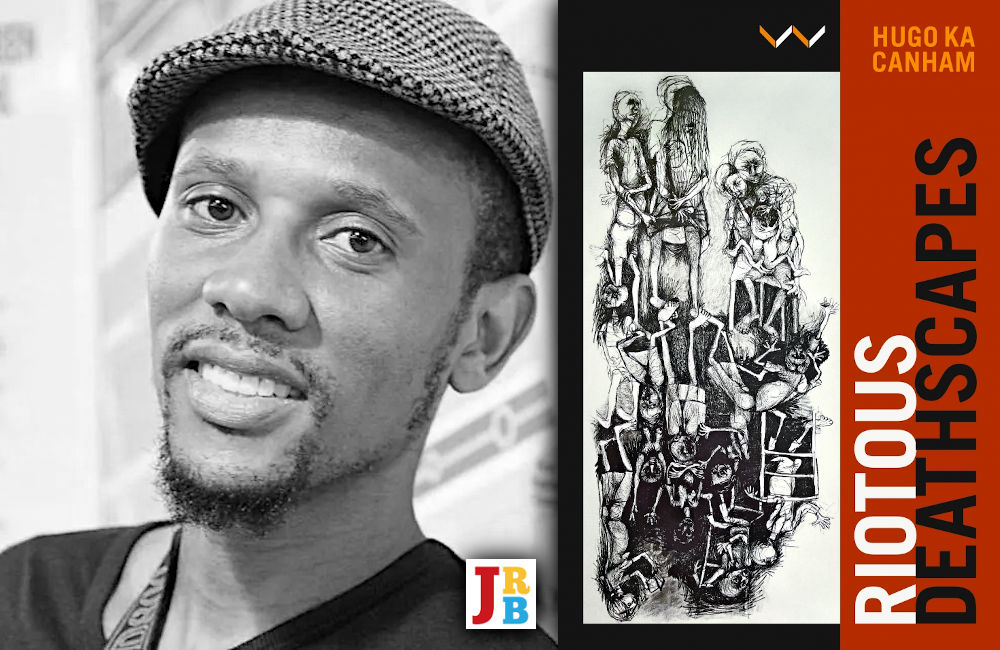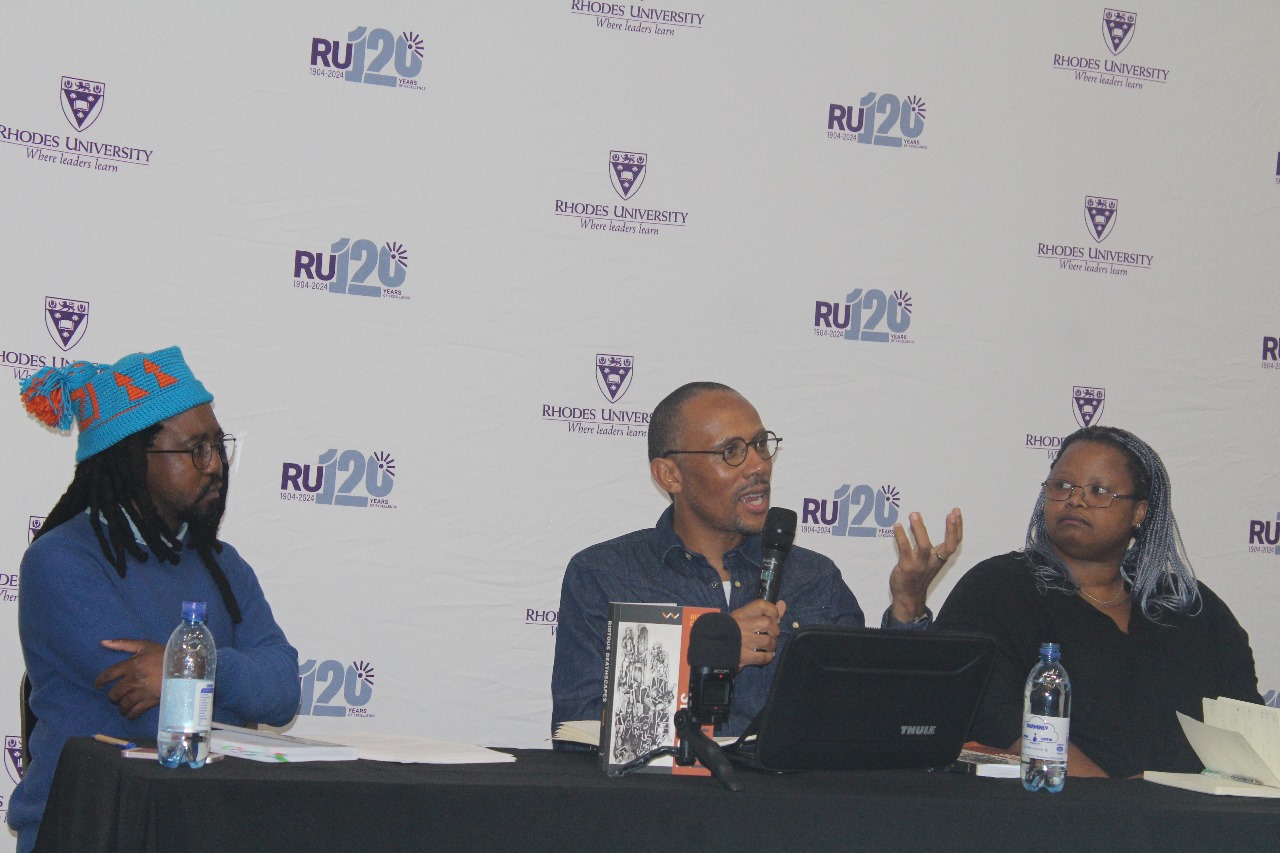By Linathi Nomntsetse
Professor Hugo Ka Canham from the Institute for Social and Health Sciences at UNISA launched his book titled Riotous Deathscapes on 25 April 2024 evening in Rhodes University Eden Grove lecture hall.
Students and scholars from various departments in the Faculty of Humanities filled the lecture venue to join in the book discussion. The panellists included Dr Thando Njovane, a Literary Studies in English lecturer at Rhodes University, Sikhumbuzo Makandula, a lecturer in the Fine Art Department at Rhodes University, and Reannetse Nkuru in the Political and International Studies Department at Rhodes University.
The Riotous Deathscapes is about life and death through what the author calls the Mpondo theory. Canham focuses on Ama-Mpondo people from the Mpondoland village in the Eastern Cape. The author explores how these people have thrived despite challenges like seclusion and non-representation in the public sphere. During the panel discussion, he mentioned the Mpondo survival methodologies were from the lives of the past to the present. The Mpondoland’s nostalgic and natural landscapes are central to the author’s book. However, Canham not only talks about the Mpondo theory in his book but also the experiences of Black people in Africa and beyond. Audience members praised Canham’s writing ability. In light of this, Njovane said, “Thank you, Hugo, for writing about home in such a fresh way”.
While praised for his unique writing style, Canham mentioned that the book was written for a future audience, and he is confident that most people he interviewed for it would most likely not read it.
One of the event organisers, Prof Siphokazi Magadla, a lecturer in Political and International Studies at Rhodes University, said that the book launch was to familiarise young people with Black authors in a predominantly White-dominated art form and try to overcome the stigma that dead men, too often write books. Canham also highlighted that he wishes young people realised that they could be authors too, and their work is supposed to reflect where they come from so that they can make others who look like them feel recognised.
The audience’s attention was thoroughly captivated throughout the discussion, with others trying to understand the gist of the book and others actively commenting and asking the discussants questions.
So, out of generosity and willingness to help people understand the book, Canham gave away a free copy to one lucky, enthusiastic student. Canham emphasised that the book launch, hosted at Rhodes University, felt extra special for him because it is close to Lusikiki. “This is probably the closest I can have an event like this, and I am grateful”.



